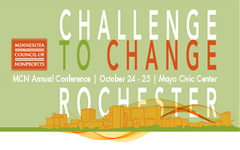We can’t have a more just society without talking about injustice
When do you get out of the way? And when do you dominate the path?
Consider the last time you walked down a crowded hallway with a mix of people of various ages, abilities, and races. The simple act of crossing paths can play out differently for folks depending on their identification with a marginalized or dominant group. Do you give deference to those approaching? Do you unconsciously assume privilege in the crowd?
The subtle elements of cultural conditioning impact our actions. And through practice, each of us can make the intention to be alert and aware of our actions- knowing that we will only be able to perceive a small bit of the effect of conditioning around advantage and marginalization. We can learn to stay in dialogue with ourselves and others to understand the historical and systemic forces at play. Walking down a crowded hallway can offer a space for reflection. With discipline, this simple act can provide an opportunity for learning how to near simultaneously read the world even while we are living in it.
Everyone who has tried to address the social realities of oppression and privilege knows that these are tough subjects. Just saying the words “oppression,” “racism,” or “sexism” will get some people’s back up. Many of us may start to feel angry, guilty, ashamed, or upset when these topics are raised.
But we can’t have a more just society without talking about injustice. How can we address these topics in a constructive way that will enable each of us to listen and grow, even when conflict and ill feelings arise?
During this year’s
MCN Annual Conference on October 24 – 25 in Rochester, keynote speaker and pre-conference presenter, Dr. Leticia Nieto, will outline an approach that can help us grow in our understanding of oppression, and our compassion for ourselves and others.

Leticia’s approach uses the language of imagery and feeling more than that of politics or activism. She believes that people can develop more appropriate and useful skills to address the issues of oppression just as they develop other types of skills. And she has found that when people learn about these skills they find it easier to tolerate discomfort, change their own behavior, and work with people whose experiences differ from their own.
Leticia understands that oppression and trauma cannot be resolved with the mind. Therefore, through her teaching and speaking, she shares the power of connecting with the body through movement, action, and theater. Embodiment has been her path to healing. Inherently, healing means coming home to the body. And social change is achieved only through collective embodiment or action.
Join nonprofit staff, board members, and leaders from across the state on
October 24 – 25 to support one another on the journey toward social justice.